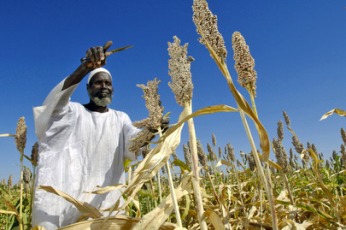Sudan says UNOCHA report about famine in Sudan is inaccurate
March 15, 2016 (KHARTOUM) – Sudanese government Tuesday questioned the accuracy of a presentation” by the United Nations Office for the Coordination of Humanitarian Affairs (UNCHA) of a report about food insecurity in Sudan and wondered about its purpose.

“Between March and September 2016, more than 4 million people will be in Crisis (IPC Phase 3) levels of food insecurity or worse,” OCHA further said.
“Saying that about four million people are at risk of famine is not based on accurate or objective information. Also it does not serve the interests of Sudan. Even, it may trigger panic among the public, cause an increase of prices and stocking up on basic supplies,” said the Humanitarian Aid Commission (HAC), on Tuesday.
“Hence HAC calls on all partners to work according to the principles of neutrality, transparency, independence, and not to use humanitarian action as a tool to pursue political agenda,” further said the statement.
The government humanitarian body said OCHA didn’t observe objectivity and accuracy when they referred to what is stated in the report of the Famine Early Warning Systems Network (FEWS).
It further accused OCHA of picking some paragraphs and taking it out of context.
“At the same time, it omitted the paragraph referring to the abundance and stability of food which is the substance of the report, raising questions about the purpose of this distortion,” HAC said in its two-page statement.
“Despite the below-average harvest, above-average carryover stocks of sorghum and millet and imports of wheat are maintaining adequate availability of staple foods,” said FEWS in its report.
Last month, the Sudanese foreign ministry criticized the figures provided by the UN agency about the number of displaced persons as result of the ongoing fighting in Jebel Marra area, Darfur.
Ali al-Sadiq said the figures published by OCHA are “inaccurate”, adding they were taken from oral reports made by UN employees which are significantly different from the government reports.
(ST)
